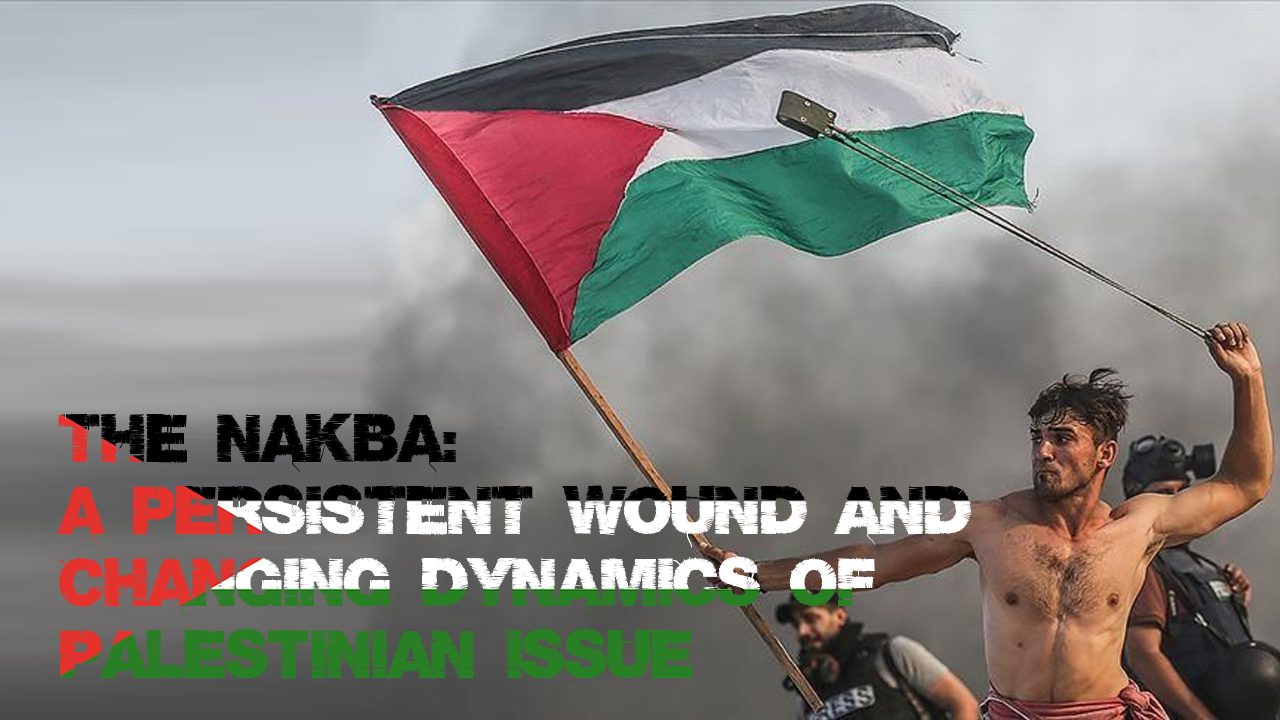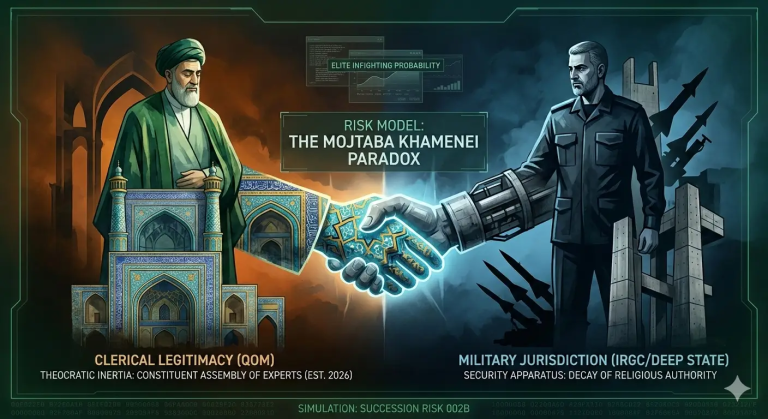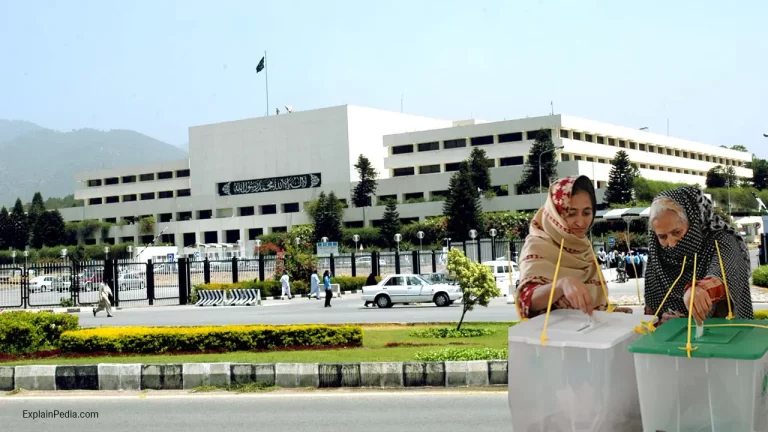On May 15, Palestinians throughout the world marked 75 years since the loss of their homes, when one nation’s victory became another nation’s misery.
The United Nations has recognized the Nakba, or “catastrophe,” in which at least 700,000 Palestinians fled or were forcefully evicted from their homes during the establishment of Israel in 1948 for the first time. While the majority of Palestinians were expelled, Israel was formed as a Jewish country.
1948 marks the miraculous emergence of a Jewish state in the aftermath of the Holocaust for Israelis and most other people who only know the Israeli story. For Palestinians, it signifies the annihilation of their society, the loss of self-determination, the displacement of the majority of people, and the seizure of their land. Yasser Arafat, the Palestinian leader at the time, invented the phrase Nakba Day in 1998.
He declared the day to be the official day for commemorating the loss of the Palestinian homeland. Israeli settlements in the West Bank have grown under successive administrations in recent decades, with the settler population topping half a million earlier this year.
The settlements are illegal under international law, and many in the international community perceive them as a barrier to peace and the establishment of a future Palestinian state.
Palestinians further emphasize that the Nakba did not cease in 1948, but continues in many manifestations to this day. What Palestinians refer to as the “ongoing Nakba” continues to cause agony, house devastation, and the loss of Palestinian lives. They see it in the ongoing Israeli occupation of their land and the daily attacks on their houses in Gaza. And they perceive it in the repeated breaches of their human rights, both within Israel and in the “occupied territories,” including the Gaza Strip.
For Palestinians all over the globe, the Nakba is remembered as a horrific rupture that symbolizes their humiliating loss, the ruin of Palestinian society, and the severance of ties with their country. The violence has been intensified by Benjamin Netanyahu’s return to power at the end of 2022 in an alliance with radical religious-nationalist Israeli groups and ultra-nationalist lawmakers.
This year marks the first time that the United Nations has recognized Nakba Day, which simultaneously commemorates the establishment of the state of Israel. While the UN move may be viewed as a diplomatic victory for Palestinians, it also helps to highlight two interconnected issues.
The first is that when Palestinian history is told, it is usually part of Israeli history. The second issue is that Palestinians – as regular people – are still mostly unknown in the West.
The 193-member General Assembly decided in November on whether to hold a commemorative ceremony as the 75th anniversary of the Nakba approached; the idea was accepted by a vote of 90-30 with 47 abstentions.
The United States, which has traditionally been a military and financial backer of Israel, voted against the event and guaranteed that no American ambassadors would attend. For decades, the Nakba did not receive widespread international recognition, as opposing narratives reduced Palestinian suffering.
The United States, Canada, and the United Kingdom were among the 30 nations who voted against the United Nations resolution to endorse this year’s memorial. For many others, the United Nations’ decision acknowledges the international organization’s pivotal role in the division of the Mandate for Palestine.
“It acknowledges the United Nations’ responsibility for failing to resolve this catastrophe for the Palestinian people for 75 years,” said Riyad Mansour, the Palestinian ambassador to the United Nations Gilad Erdan, Israel’s UN envoy, termed the memorial “abominable” and a “blatant attempt to distort history.”
This year’s Nakba Day comes on the heels of renewed bloodshed between Israel and Palestinian terrorist organizations. Israeli airstrikes targeting top officials in Islamic Jihad, the second-largest Palestinian armed group in Gaza, killed at least 33 Palestinians. Meanwhile, Palestinian terrorist organizations launched as many as 800 rockets toward Israel, killing two Israelis. “The catastrophe for the Palestinian people continues,” and Palestinians are continuously being “forcefully removed” from their homes. Some Palestinians are concerned about a second Nakba.
They argue their purpose is just to stay put to avoid another historic relocation.
As the United Nations has declared Nakba Day, is it conceivable that we are coming closer to resolving the Palestine issue? If we carefully examine the shifting dynamics of international politics and rising trends in the Middle East, we may hope for a settlement of the Palestine dispute.
The idea that history has a conclusion, as espoused by neoconservatives in the unipolar 1990s, is erroneous since it is in an eternal cycle of renewal. The handshake between Iran, Saudi Arabia, and China makes Israel nervous. The loss of US influence in Saudi Arabia, as well as the Kingdom’s growing relationships with China and Iran, are stinging reminders of the Neocon policy of sustaining US global hegemony through aggressive military projects.
China has effectively superseded the American Empire by projecting economic power instead. And now for another historic handshake between Yemen’s Ansarallah and Saudi Arabia. This will shift the regional order in the Middle East away from the US and Israel.
Following the Abraham Accord, however, several countries, notably Bahrain, Morocco, and the United Arab Emirates, normalized ties with Iran, directly damaging its regional stature and hastening its isolation.
By signing the agreement, Iran addressed its concerns about Israel and Arab governments working together to target its nuclear program while backing the Palestinian cause.
This agreement also allows the US to exert pressure on Israel. The Israeli Democratic Party is more closely associated with American Democrats. President Biden requested a cease-fire during Israel’s conflict with Hamas in 2021, undermining Netanyahu’s authority.
Many Democrats urged Biden to be aggressive and critical of Israel’s policy actions. Because Washington mistrusted Netanyahu’s government, Neftali Bennett rose to prominence, eventually driving Netanyahu to resign. Now that Netanyahu has returned and is causing substantial internal strife and division, the US has been able to undermine its authority and support base once more.
As a result, the new Saudi-Iran peace treaty warns Israel of its reliance on America and that inattention will not be tolerated. Israel has been the most concerned country since the agreement.
The alliance of two significant regional superpowers, one of which is a fierce foe, weakens and jeopardizes Israel’s security and existence.
The Palestinian problem is seeing a tremendous comeback at the moment. And this will have a significant influence on Arab society as well as the mentalities of Arab leaders.
It’s as though we’ve traveled back in time. We’ve returned to a time in Middle Eastern history when the Palestinian issue was critical.




